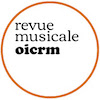Numéro spécial « Music and Language Revisited », Rivista Italiana di Filosofia del Linguaggio.
Numéro dirigé par Chris Stover & Stefano Oliva.
« The relationship between music and language has been complicated since the advent of post-Enlightenment musical aesthetics. On one hand, as Eduard Hanslick insists in Vom Musikalisch-Schönen (1854), music’s content consists solely of sound forms in motion; on the other hand, music does seem to have some sort of para-discursive semantic quality: “it is a language we speak and understand, but which we are unable to translate”.
Suspended between the project of a musical semantics and the myth of music’s ineffability, the philosophy of music has never broken its problematic link with the philosophy of language. Recently, analytic philosophy and neuroscience have addressed the question of the emotional content conveyed by music, taking advantage of new conceptual tools and empirical data previously unavailable; in this way, however, they have had to deal again with questions about the sense and meaning of musical experience.
The current decline of those theoretical orientations more or less connected to the ‘linguistic turn’, and in particular the abandonment of the projects of musical semiology, has not led to a resolution but rather, might be said simply to have elided the question of the relationship between music and language. At the same time, however, interest in music (and its relationship to language) has had something of a recurrence in philosophy: as Giorgio Agamben (2016) has recently noted, “philosophy is today possible only as a reformation of music”, by music meaning “the experience of the Muse, that is, of the origin and the taking place of the word”. Agamben’s provocative comment places music back in the center of a wide range of inquiry practices.
This issue of RIFL – Rivista Italiana di Filosofia del Linguaggio intends to re-engage questions of the relationship between linguistic meaning and musical expression, in conjunction with recent developments in contemporary cross-disciplinary research from cognition and neuroscience, linguistics, philosophy and beyond. »
Date limite des propositions : 18 mars 2020.
Détails : cliquez ici.
